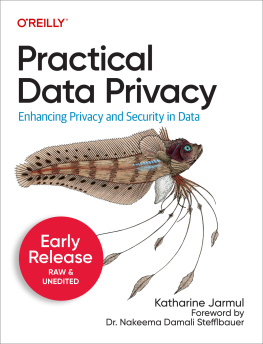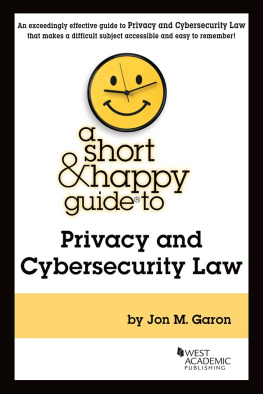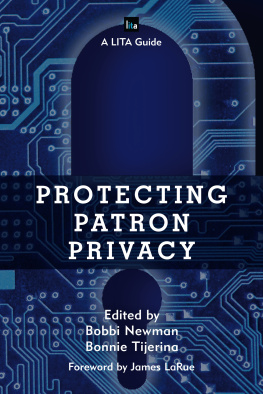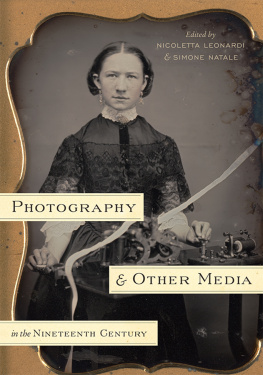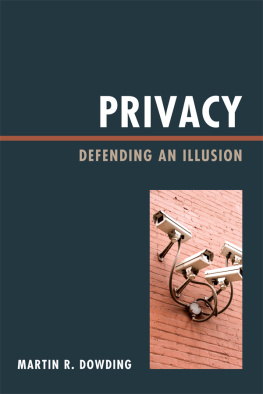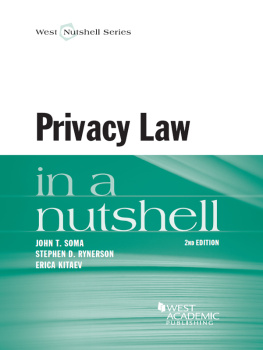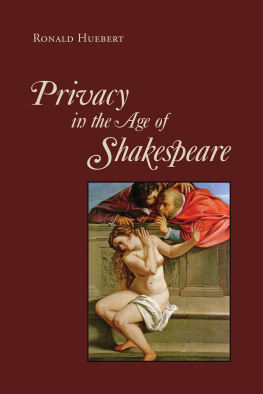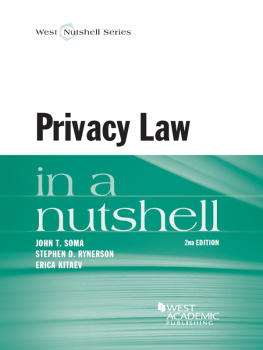YALE LAW LIBRARY SERIES IN LEGAL HISTORY AND REFERENCE
The Face That Launched, a Thousand Lawsuits
The American Women Who Forged a Right to Privacy
JESSICA LAKE

Published with support from the Lillian Goldman Law Library, Yale Law School.
Published with assistance from the Mary Cady Tew Memorial Fund.
Copyright 2016 by Jessica Lake.
All rights reserved.
This book may not be reproduced, in whole or in part, including illustrations, in any form (beyond that copying permitted by Sections 107 and 108 of the U.S. Copyright Law and except by reviewers for the public press), without written permission from the publishers.
Yale University Press books may be purchased in quantity for educational, business, or promotional use. For information, please e-mail (U.K. office).
Set in Minion type by Westchester Publishing Services, Danbury, Connecticut.
Printed in the United States of America.
ISBN 978-0-300-21422-2 (hardcover : alk. paper)
Library of Congress Control Number: 2016939462
A catalogue record for this book is available from the British Library.
This paper meets the requirements of ANSI/NISO Z39.481992 (Permanence of Paper).
10 9 8 7 6 5 4 3 2
For Matilda, Lawrence, and Henry
Contents
Acknowledgments
This book began life as a doctoral dissertation in law and film studies at the University of Melbourne. The extensive research on which it is based would not have been possible without the generous assistance of numerous librarians and archivists across the United States. In particular I would like to sincerely thank Jenny Romero, Special Collections Department coordinator at the Academy of Motion Picture Arts and Sciences Margaret Herrick Library (Beverly Hills, California), for helping me to locate and review folders of clipping files and production notes in Special Collections for the films subject to important privacy litigation. Also in California, I would like to acknowledge the enthusiastic efforts of Peter Dalgenos and other staff members at the Witkin State Law Library in Sacramento for transporting numerous case records and briefs from remote warehouses specially for my visit and subsequently providing me with further research assistance once I returned to Melbourne.
I also wish to thank the librarians in the Manuscripts Reading Room and the Newspaper Reading Room at the Library of Congress in Washington, D.C., who kept my spirits up as I nearly lost my sight straining to read microfiche for hours on end searching for one particular undated news article in the Albany Journal. In addition, I am very grateful for the assistance of the law librarians at the Library of Congress for helping me to locate and review the important 1888 Bill to Protect Ladies. Across town I also found valuable assistance at the National Archives, where the Legislative Archives consultant spent so much time with me reviewing limited clues relating to a nineteenth-century petition I was desperately trying to locate and, in the end, directed me to a number of dusty and fragile boxes from 1888, where in a wonderful eureka moment, I found the Petition against the Bill to Protect Ladies.
In Rochester I was offered cheerful assistance by Kathy Connor, George Eastman Legacy Curator at the George Eastman House International Museum of Photography and Film, and Nancy Martin, university archivist at the Rush Rhees Library of the University of Rochester, who helped me locate and review extensive early advertising material in the George Eastman Archives and the Kodak Historical Collection, respectively. I also offer special thanks to Shawn Purcell and other librarians in the Manuscripts and Special Collections Unit of the New York State Library in Albany, New York, who located a plethora of case records and briefs and looked after me during the long hours I spent at the library. During my research trip I was unfortunately not able to visit Topeka, Kansas, to review the primary court documents for one case in particular, Kunz v. Allen, and so I am particularly indebted to the generosity of Martin Wisneski from the Washburn University Law Library in Topeka for traveling to the Kansas Supreme Court Law Library, copying the entire thing, and sending it to me. This case was crucial to the development of my thesis, and I am forever grateful for his considerable efforts.
While I was in the United States I presented a paper at the Association for the Study of Law, Culture, and Humanities was published in Law, Culture, and Humanities in December 2011.
The many months I spent conducting research for my project in the United States would not have been possible without the financial assistance of a number of organizations. First and foremost I would like to thank the Australian and New Zealand American Studies Association for awarding me the generous Paul Bourke Postgraduate Travel Fellowship and the University of Melbourne for the award of a Melbourne Abroad Traveling Scholarship. My research was also made possible, during the years of my Ph.D. enrollment, by an Australian Postgraduate Award from the Australian government. I would also like to thank the Centre for Media and Communications Law at Melbourne Law School, which provided me with a visiting research fellowship while I began to transform my dissertation into a book.
My Ph.D. degree at the University of Melbourne was a joint enrollment in the Melbourne Law School and the School of Culture and Communication. I would like to thank my supervisors Barbara Creed in the School of Culture and Communication and Megan Richardson in the Melbourne Law School for encouraging my project and dedicating their time and effort to discussing and reviewing my progress. The interdisciplinary nature of my topic may have been a challenge to traditional models of supervision, but my project benefited from the combination of their different areas of expertise and from our lively meetings. At the University of Melbourne, I was introduced to American history by David Goodman, to privacy law by Andrew Kenyon, and to cinema studies by Mark Nicholls and Angela Ndalianis. Their classes inspired my first interest in these fields.
I would like to thank my colleagues in the Law School at Swinburne University of Technology, especially the dean, Dan Hunter, for supporting my research and taking an interest in the development and progress of this project.
I also wish to acknowledge the dedicated work of my Ph.D. examiners, Kathy Bowrey and Sonia Katyal, whose keen insights, thoughtful comments, and positive feedback were important in helping me turn my dissertation into a book. This process also benefited from the enthusiastic response and valuable suggestions of two anonymous reviewers.
And warm thanks to my editor at Yale University Press, Jaya Chatterjee, for her encouragement and belief in this book.
Thank you to my friends for your ongoing curiosity about my work and for providing me with outings, distractions, and weekends away when I most needed them. Heartfelt thanks to my family for their continuing support, emotionally and materially, over the past several years. My parents, Marilyn and Sam Lake, have offered models of commitment to academic scholarship and much else besides. Both parents and parents-in-law, Eril and Teng Tan, helped cook our food, clean our house, and care for our children while I worked very long days to complete this book. My sister, Katherine Lake, has given me encouragement and made me laugh during hard times.
Above all I offer loving gratitude to my husband, Lachlan Tan, always wise, generous, and kind in the midst of chaos and sleep deprivation and during the many long hours I have spent researching and writing. And last, but certainly not least, warm thanks to my delightful daughter Matilda and her baby brothers, our twin boys Henry and Lawrence, who have all entered the world during a very busy and crowded few years. They have made it all worthwhile, and it is to them that I dedicate my book.
Next page

